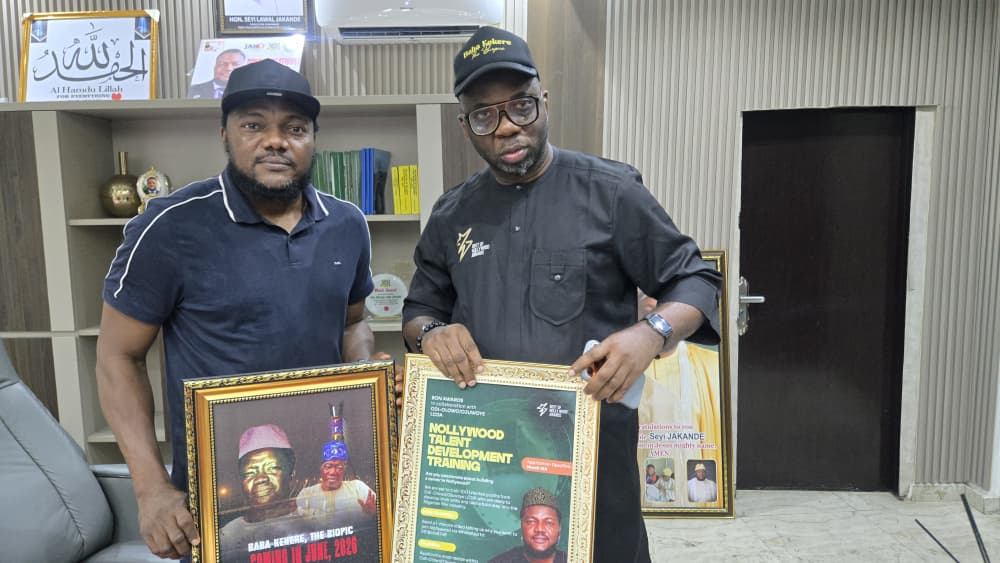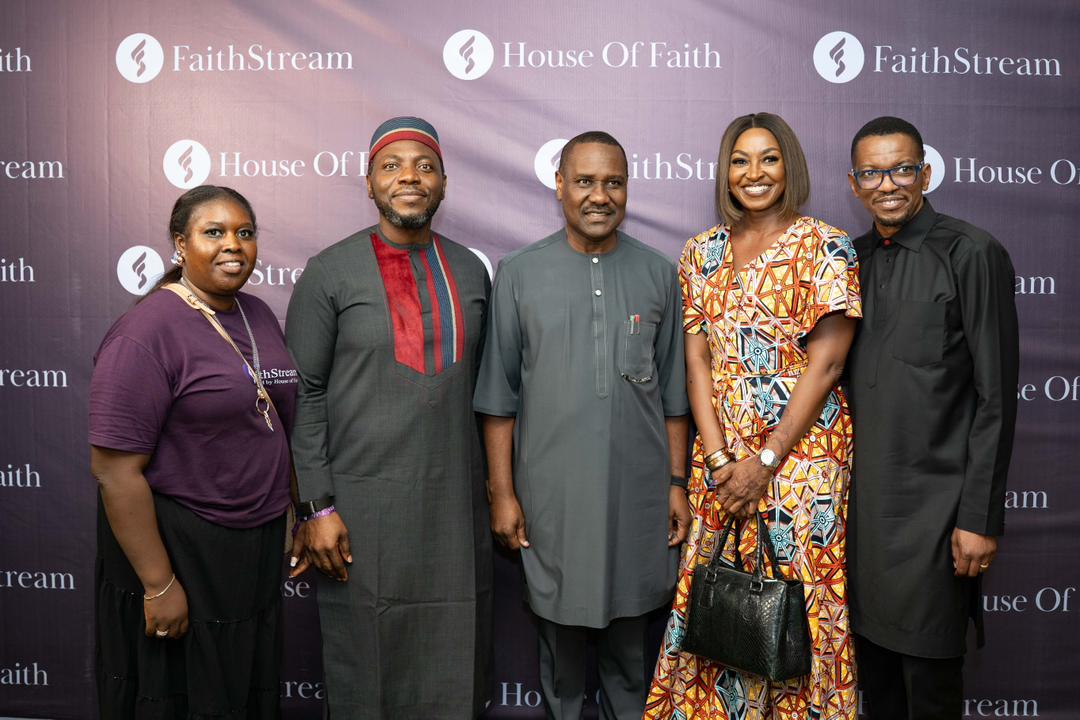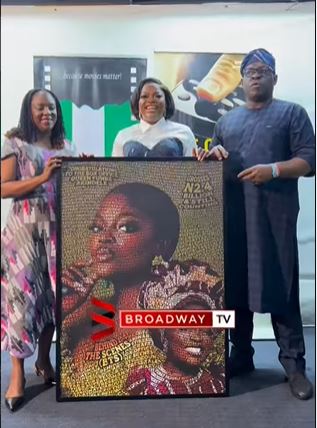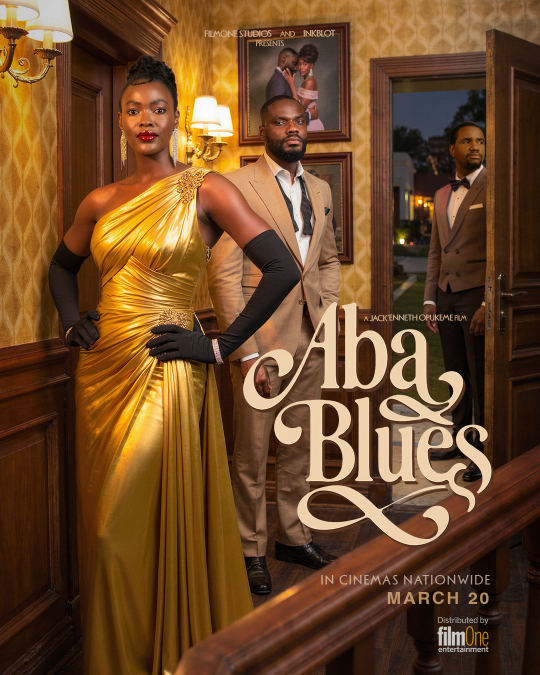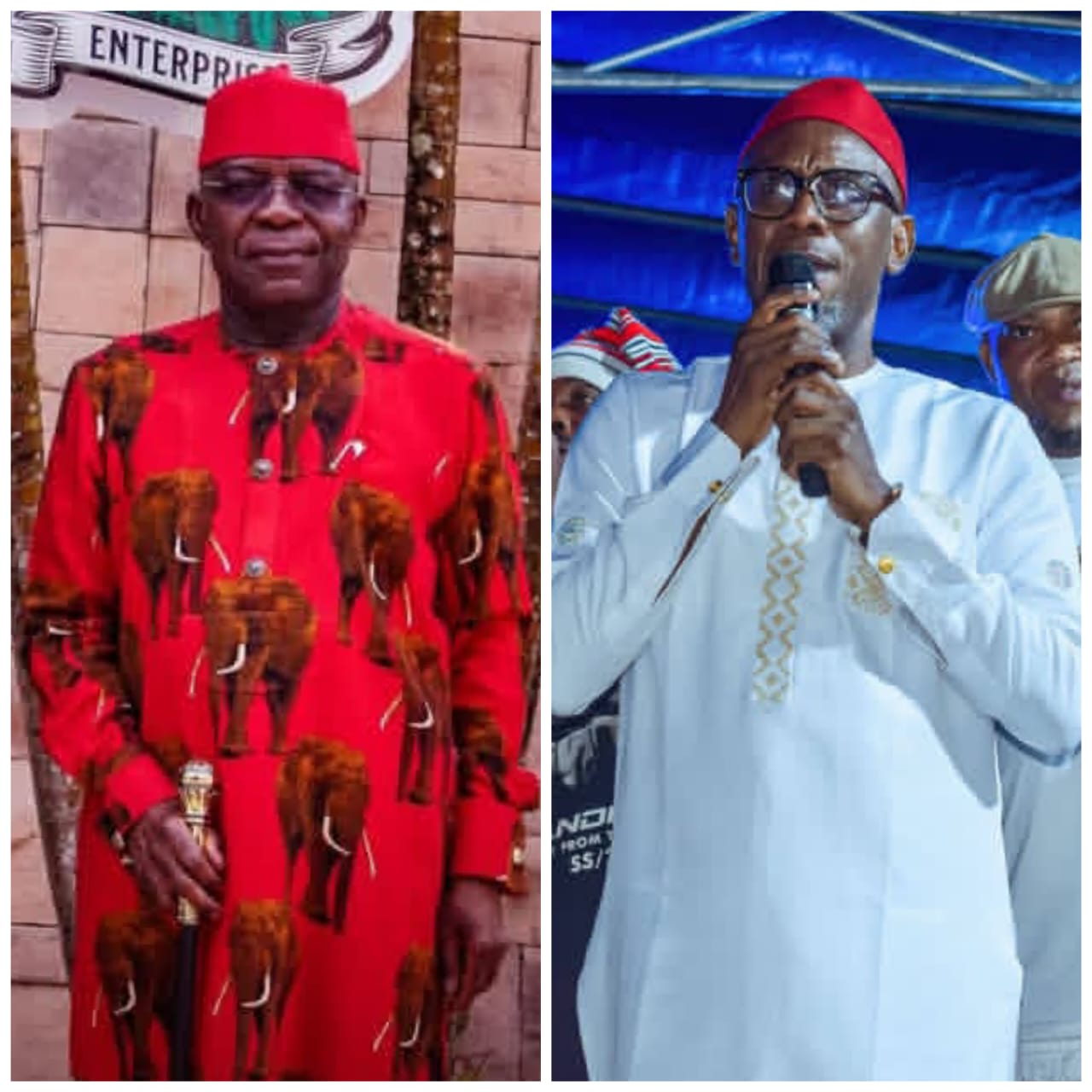Much Ado About Faithia Balogun’s ‘Efunroye: The Unicorn’ Movie
MICHAEL AKINOLA
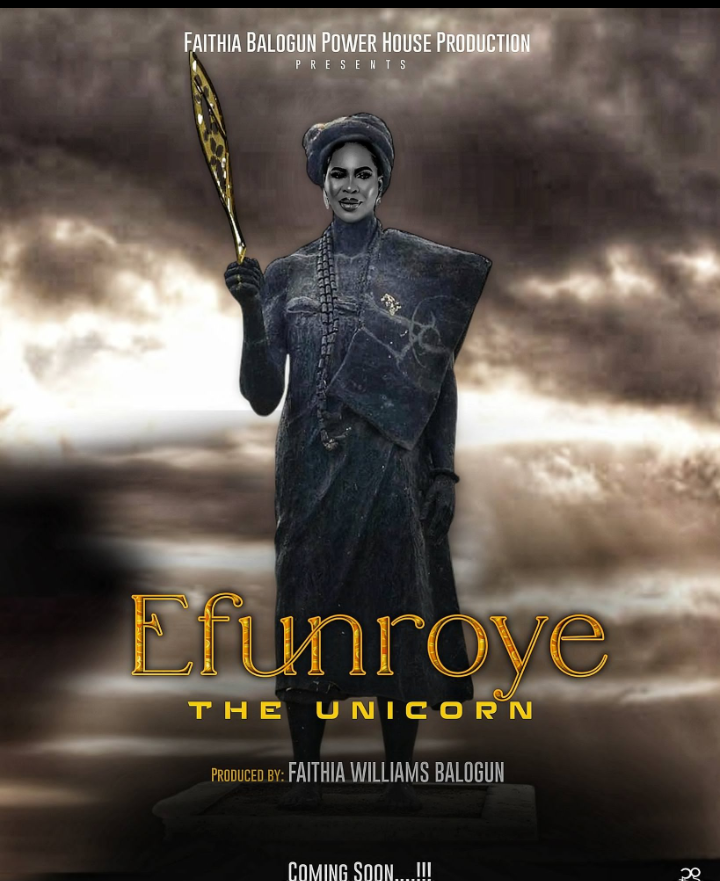
Nollywood actress and producer, Faithia Balogun’s proactive decision to create an upcoming biopic film, Efunroye: The Unicorn has been greeted with a mixed reaction among film enthusiasts.
The biopic which focuses on Efunroye Tinubu, a powerful Yoruba merchant and slave trader from pre-colonial and colonial Nigeria, was greeted with criticism upon its announcement.
It will be produced by Faithia’s Power Housing Production.
On Wednesday, the 55-year-old actress teased her audience with the film’s poster on social media, though she withheld the release date.
Her post read: “Power. Trade. Legacy. She was more than a warrior; she was a ruler who rewrote history. ‘Efunroye: The Unicorn’ is coming to your screens soon! Are you ready?”
However, the actress didn’t disclose the names of the other cast members in the movie; the flyer showed that she portrayed the role of Efunroye.
Hours after the announcement, a wave of adverse reactions was directed towards the film, which largely centres on Efunroye’s legacy as a slave trader accused of selling her people for profit.
The film drew criticism for its subject, Madam Efunroye Tinubu who some argue glorifies a figure known for her involvement in the transatlantic slave trade, and the fact that she shares the ‘Tinubu’ name with Nigeria’s current president, Bola Tinubu, further intensified the backlash.
Madam Tinubu married Ọba Adele Ajosun and the landmark, Tinubu Square in Lagos, Nigeria, was named after her and also has a statue of her.
It’s unclear if President Tinubu is related to Efunroye in any way —historically, she married several times, including into the Tinubu family.
Despite her prominence and the fact that Tinubu Square in Lagos is named in her honour as a symbol of resilience and entrepreneurship, Madam Tinubu’s involvement in the slave trade casts a long shadow.
Gbadebo Rhodes-Vivour, Labour Party Governorship candidate in Lagos during the 2023 election stated on X: “The Yoruba were the biggest victims of Madam Tinubu’s kidnapping, human trafficking and enslavement network. In the British attempt to end human trafficking and her ruthless opposition to it, she was exiled from Lagos. When Nigerians do DNA tests, they will see the number of unknown relatives they have scattered all across the Americas and West Indies. They will realise how close and how deep this chapter of our history is. It is unfortunate that Nigerians are still dealing with a ruthless elite that amass their fortune at the detriment of their people.”
Countering Rhodes-Vivour’s claims, another X User, Don Dekojo wrote: “This is ahistorical, she was expelled because of anti colonial sentiments. The Lagos residents allowed other merchants to continue trading slaves, so slave trade couldn’t have been the excuse to expel her, she was only more successful and was anti colonial. Totally ignoring how she funded the liberation of the Egbas against Dahomey Marauders is unfair. History isn’t black and white and you should be presenting a robust contribution not simplistic ahistorical conclusions.”
To an X user, Gbadebo Opeibi, the conversation around slavery can be really emotional because that is one of the darkest parts of black history.
“I am personally anticipating Efunroye. I hope this project gets executed in the most accurate way. For someone who is Egbado, I know how much our people suffered due to the wicked slave raiding carried out by the Dahomey Amazons. Egba people were only lucky to have someone like Madam Tinubu. So technically, she was a hero to her people,” Opeibi stated.
He added; “The convo around her role during the slave trade era is understandable, but trying to manipulate history isn’t. First of all, Madam Tinubu did not engage in slave raiding or kidnapping like some people are saying. She owned slaves through the traditional slaving system. Slavery was a legal form of punishment in Yorubaland until slave raiding started. It was just like sending an offender to jail in today’s world.
“For example, people who kill other people get enslaved; men who rape women get enslaved; people who owe debt get enslaved; war captives, criminals, and other offenders get punished through slavery. It was a legal system during this era; in fact, it was also a payment method too.”
Also knocking Rhodes-Vivour for his poor sense of history, Reno Omokri, former Presidential spokesman and critic, wrote: “I just read with great dismay the post by Gbadebo Rhodes-Vivour condemning efforts on the part of filmmakers to capture the exploits of a genuine heroine of the Lukumi people of Yorubaland, and I am taken aback that this is a man who believes he represents the aspirations of the people of Lagos…
“If Gbadebo Rhodes-Vivour had really treasured the history of Eko, he would have known that Madame Efunroye Tinubu was not being honoured because she was a slave trader. Her canonisation in Lagos history is because she was one of the first people in the geographical area now known as Nigeria to fight the British. She wanted a free Lagos that was not controlled by Great Britain. For fighting to maintain the independence of Eko, she lost most of her wealth and was banished to Abeokuta.
“While in Abeokuta, she built up her lost wealth from scratch, and when war broke out between the Egbas and Dahomey, Madame Efunroye Tinubu was single handedly responsible for saving the Egbas, as she revived her secret mercantile network and used it to procure guns and gunpowder for the Egba army, for which Alake Okukenu Sagbua made her the Iyalode of Egba. If not for her, Egbaland could have been a part of the Benin Republic today. For this and other reasons, the city fathers of Lagos decided in their wisdom to name the most prominent promenade in Lagos Tinubu Square, in honour of Madame Efunroye Tinubu.”
But responding officially to criticisms, Faithia clarified on her Instagram page Thursday that the movie was not intended to celebrate slavery. Instead, she emphasised its purpose was to bring Nigerian stories to life on screen.
She also addressed concerns of political bias, stating that the film was not affiliated with the Tinubu-led government.
Faithia described the movie as a creative expression aimed at entertaining, educating, and sparking thoughtful conversations, not a political message.
In her words, “Efunroye: The Unicorn’ is neither a documentary nor a political statement.”
She wrote: “Firstly, ‘Efunroye: The Unicorn’ is not a promotional piece intended to glorify or whitewash a divisive historical figure like Madam Efunroye Tinubu. Nor does it carry any political intent or affiliation. This film is purely a work of artistic interpretation and storytelling. As a filmmaker, my goal is to bring Nigerian stories to life on screen, and this is no exception.
“The movie attempts to present Madam Tinubu’s life in a balanced and nuanced way, showcasing her triumphs, challenges, and the complex legacy she left behind. It is not an effort to reshape or glorify the historical narrative. Like all historical figures, Madam Tinubu’s story is layered, and this film aims to capture both her strengths and controversies.
The actress expressed her gratitude to both loyal fans and non-fans for the movie’s overwhelming support.
“With over six million views on my post, I do not take your support for granted—your interest and feedback are truly appreciated. However, while inspiring, the passion and emotions surrounding this project (especially on Twitter) have led to some misconceptions that I would like to clarify”, she said.
Faithia revealed that the film is currently in its 114th stage of development and pre-production.
She expressed her commitment to telling the story in the most authentic and impactful way possible.
She stressed the film’s significance, adding that she and her team diligently work to bring it to life with the utmost care and attention.
Faithia said, “As with any artistic work, it draws from history but takes creative liberties to make the story more engaging for modern audiences. Through this film, we can explore important parts of our history, but it is essential to understand that it remains a work of fiction inspired by actual events.
“I deeply appreciate the passion this movie has stirred, and I hope that when it is released, viewers will approach it with an open mind and appreciate it as the work of art it was always intended to be. Let’s continue the conversations about our history and culture, but let’s also remember that film, at its core, is a medium for storytelling and entertainment. Thank you again for your support, and I look forward to sharing this project with you soon.”
Efunroye was born in the Ojokodo forest area of Egbaland and emerged as a politically and economically influential figure in Lagos during the reigns of Obas Adele, Dosunmu, Oluwole, and Akitoye.
She played a pivotal role in helping the latter two Obas gain political power.
Efunroye married multiple times, with her first marriage to an Owu man. It bore two sons.
After her Owu husband died, she remarried the exiled Oba Adele Ajosun in 1833, who, while visiting Abeokuta, was allegedly charmed by Tinubu.
When married to Oba Adele, she leveraged her extensive connections to establish a prosperous trade network with European merchants.
She dealt with enslaved people, tobacco, salt, cotton, palm oil, coconut oil, and firearms. It is believed that she owned over 360 personal enslaved people.
Efunroye passed away in 1887 and was interred in the Ojokodo Quarters of Abeokuta.
In her honour, Tinubu Square in Lagos, Nigeria, was named after her, featuring a statue commemorating her legacy. A statue of Efunroye can also be found in Abeokuta, further celebrating her significant contributions.



